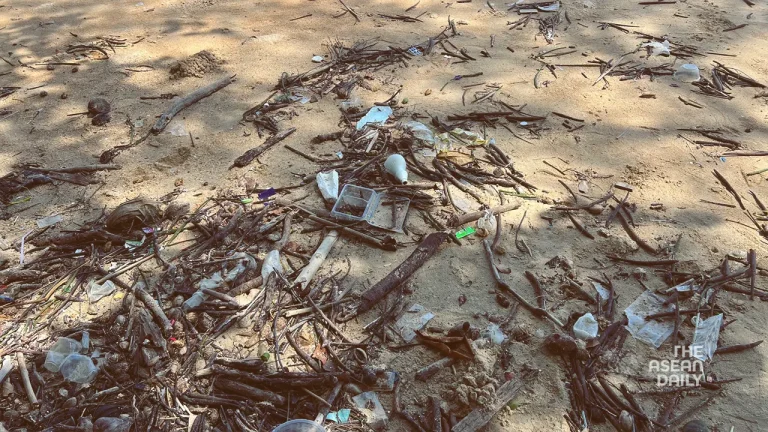166-1-2025 (BANGKOK) Phuket’s pristine beaches and legendary sunsets are being overshadowed by a mounting crisis that threatens to tarnish the island’s reputation as Thailand’s premier tourist destination. The picturesque waters surrounding this tropical paradise now harbour an unsettling secret: a seabed littered with plastic bottles and discarded beer cans, whilst on land, a towering mountain of refuse grows ever larger.
At the heart of this environmental emergency lies a mammoth landfill site that processes over 1,000 tonnes of waste daily. For local resident Vassana Toyou, the transformation has been dramatic. Where once stood majestic mountain vistas, now looms a sprawling expanse of rubbish, forcing her family to retreat indoors to escape the pungent odours that pervade the area.
“Life outdoors has become impossible,” Toyou explains, her face partially concealed behind a protective mask. “The stench has forced us to run air purifiers and air conditioning constantly, causing our electricity costs to double.”
The root of Phuket’s waste predicament can be traced to its burgeoning tourism industry. As Thailand’s largest island and a crucial contributor to the nation’s economy, Phuket welcomed approximately 13 million of the country’s 35.5 million foreign visitors in 2024.
Suppachoke Laongphet, the island’s deputy mayor, acknowledges the severity of the situation. “Our urban development has far outpaced our infrastructure capabilities,” he admits. The tourism resurgence and construction boom have pushed waste generation beyond pre-pandemic levels, with projections suggesting daily refuse could reach 1,400 tonnes by late 2025.
Local authorities have unveiled ambitious plans to address the crisis, including a targeted 15% reduction in waste generation within six months, landfill expansion projects, and the construction of a new waste incinerator. However, experts warn that these measures alone may prove insufficient.
“Simply increasing incineration capacity isn’t the complete answer,” cautions Assistant Professor Panate Manomaivibool, a waste management specialist at Burapha University. “The focus must shift towards waste reduction and proper separation at source.”




